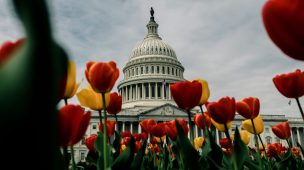23 November: What’s going on in ESG and insurance?
23 November, 2023
Welcome to our ESG roundup, keeping you up to date on the insurance industry’s most significant ESG-related news. This week’s topic: COP28 and why insurance is vital
Read our summary and analysis below
Analysis
COP28 and why insurance is vital
COP28 begins in a week’s time. A year ago, in this newsletter we reported on the events at COP27. Prior to that conference, held in Sharm El Sheik, we noted that it would be focused more on action and implementation than in previous years, and that there was a consensus view that long term resilience building is key to responding to the challenges of the coming years. At the conference itself there was extensive discussion around “who should pay” and progress made with development of the “Loss and Damage” fund to address climate damage in countries which are, broadly, not responsible for the impacts.
Recent developments have seen COP28 president Dr Sultan Al Jaber negotiate an impasse by insisting that developing countries retain oversight of a World Bank-administered ‘loss and damage’ fund. This is to stave off accusations from developing countries of exploitation. Although the agreement is not done and requires sign-off from some 200 world governments, it is great progress.
Insurance can play a key role in financial initiatives to reduce the damage of climate change to developing countries. Recently published research indicates wealthy nations could provide 100 of the world’s most vulnerable countries a combined $25 billion in annual protection against climate disasters for as little as $10 million per nation.
“The idea is to use that new source of funding to protect these countries at a structural level,” said Rowan Douglas, CEO of Climate Risk and Resilience at Howden, which co-authored the research. “At the moment, there’s no product out there that protects national economies in this sense.”
What the research shows is that whilst large actions are vital, it is surprisingly easy to have immense social impact through a structural approach. The difficulty lies in the coordination and agreement of multiple parties, without whose support such initiatives cannot succeed. For those that wish to see effective action on climate, it is hoped that COP28 provides some of the coordination and impetus needed to grasp the nettle and get beyond endless discussion.
What will emerge from this latest COP remains to be seen, but innovations in the insurance industry can go a long way to addressing the climate crisis. From carbon credit insurance to InsurTechs helping to analyse and integrate ESG data into underwriting, the opportunity for developments in insurance, remains huge!
Summary
Action on ESG
Climate vulnerable nations could get insured for $10 mln a year each -research (Reuters)
Wealthy nations could provide 100 of the world’s most vulnerable countries a combined $25 billion in annual protection against climate disasters for as little as $10 million per nation, in research published a week ahead of the UN’s COP28 climate summit in Dubai.
Cambridge University researchers confirmed that the world’s most climate-vulnerable countries remain insurable until 2050, based on modelling of the risks climate change is inflicting. Further, contributions from donor countries to fund climate damage protection “premiums” would massively scale up protection available to vulnerable nations.
UK highlights a role for disaster risk financing in delivering SDGs (Insurance Insider – subscription required)
The UK government has set out a re-energised international development agenda, which highlights a need to scale up and strengthen disaster risk financing mechanisms, as it seeks to get back on track to deliver UN sustainable development goals (SDGs) by 2030.
Govt mulls tax breaks for insurance sector (NewsDay Zimbabwe)
At the end of the Insurance Institute of Zimbabwe (IIZ) 2023 annual conference held in Victoria falls last week, insurers agreed that the sectors challenges could easily be handled through innovation.
MUA Insurance Company Rwanda CEO Konde Bugingo said innovation drove the creation of new insurance products and services urging insurers to develop policies that address emerging risks, such as cyber insurance, parametric insurance, and climate-related coverage.
Innovations in insurance can also be driven by a focus on diversity and inclusion to develop insurance products that cater to underserved populations and those with unique insurance needs. Sustainability and ESG can see collaboration between insurtech startups and traditional insurers.
IIZ president Tatenda Katoma implored government to consider incentives that encourage the industry to innovate, for example tax exemptions.
Prudential unveils ESG strategies (MSN.com)
Prudential Life Assurance (Thailand) has outlined ESG strategies and vowed to put them into practice in every business segment. It has a framework of three pillars: accessible health and financial protection; responsible investment; and sustainable business.
The first is creating equal access to health and financial protection through collaboration and digital innovation for health outcomes. The second is investing responsibly by reducing carbon emissions through portfolio lending, funding fair and inclusive business transactions and integrating responsible investing in emerging markets. Finally, the company vows to grow the business sustainably through supporting employees to be aware of sustainability and creating sustainability standards at the leadership level.
Swiss Re alleged to have insured illegally deforested farmland in Brazil (Insurance Business)
Swiss Re was found to have taken out at least 19 policies from 2016 to 2022 for large farms that have been proven to have undergone illegal deforestation, according to Public Eye which is an NGO concerned with sustainability.
The investigative organisation Repórter Brazil released a report which alleges that Swiss Re profited from insurance policies made on these illegally deforested lands in Brazil. From the data it gathered, it was found that Swiss Re was ranked fourth in the previous year for agricultural contracts that were concluded as part of a state subsidy program.
Attitudes towards ESG
Employer and ESG risks rise as boardrooms feel ill-equipped to respond – Beazley (Insurance Business)
A new report from specialist insurer Beazley based on a survey of 2,000 global business leaders highlights a growing focus on internal organisational risks among CEOs and executives. A rise in staff reporting of workplace issues, partly attributed to the #MeToo movement, and deteriorating mental health post-pandemic has intensified the need for workplace support initiatives. 27% of executives feel ill-equipped to handle contemporary employer risks.
Evolving ESG regulation worldwide is also particularly challenging for multinational companies operating in varied legal environments. While many businesses are proactively addressing environmental responsibilities, 22% of global business leaders now rank ESG as their primary business risk, up from 19% in 2022. However, 26% of global executives feel unprepared to manage and respond to ESG-related risks effectively.
Find the full report here: Spotlight On Business Risks 2023
How ‘ESG’ came to mean everything and nothing (BBC Worklife)
Despite major commitments from leading companies to become more sustainable through splashy ESG commitments, the movement as a whole is arguably quite fragile.
Part of this may lie in the term “ESG” which has morphed into an umbrella catchphrase with little concrete meaning. Alex Edmans, a finance professor at London Business School says the words don’t belong together: “Environmental and social is about how we serve wider society. Governance is about how we generate returns.” As a result of this unclarity, “ESG” has come to represent different things to different people and the overuse of the term to mean general good deeds of companies has led to its devaluation.
In the political arena, attacks have come from both opponents of the term who see it as an ideological attack but also proponents who point out company failures around sustainability and accuse others of greenwashing. However, whilst the term may be under threat there is no reason to think that the issues discussed will become any less pressing or disappear. Investors continue to put pressure on businesses to act with environmental, social and governance considerations at the forefront even if the term itself is not used.
Trust in ESG ratings low among advisers and wealth managers (FT Adviser)
Most advisers and wealth managers think ESG raters need to be more transparent about their methodology, with research finding that less than a fifth trust ESG ratings. Association of Investment Companies (AIC) research director Nick Britton said the survey showed that advisers and wealth managers remain “deeply sceptical” about sustainability claims from funds. This is even as they expect growing demand for such strategies.
Another issue is that ESG ratings agencies may have their own methodologies, with topics considered being very subjective. Such subjectivity motivated the convening of the ESG Data and Ratings Code of Conduct Working Group in July which held a now-closed consultation on the code.
Beyond the climate
D&I in insurance: Promoting an inclusive culture (ESG Insurer)
Head of Actuarial at Assured Allies, Nkenge Blue, says that insurance companies can ensure their diversity and inclusion (D&I) policies target legitimate issues by ensuring there are real values underlying increased representation rather than it simply being a box-ticking exercise.
D&I initiatives can provide strategic corporate advantage. For example, to get underserved communities insured you need to craft materials that appeal to and resonate with them. People from these communities may be best placed to create such marketing materials.
In the workplace, simply hiring a diverse set of individuals is not enough: the environment itself should be inclusive and equitable. As soft as it may sound, it is vital to check in to see if people are comfortable, enjoying their time, progressing and getting the development opportunities they deserve.
Just because a woman holds a senior role does not mean the environment is equitable. For instance, it may have taken them three more years to reach that level compared to a male peer or the firm may have passed over another female colleague with childcare responsibilities and flexible working requirements. The qualitative element, in other words, is vital.
RSA to launch new equal parental leave policy (Insurance Times)
RSA Insurance has announced it will launch a new equal parental leave policy next year. All parents will be offered equal leave of up to 52 weeks, of which 26 are fully paid. It will apply to anyone with six months service and whose child or children are born or adopted after 1st January 2024.
RSA said it aligned with their diversity, equity and inclusion strategy of encouraging all parents to take time to care for their child. RSA said it had partnered with social enterprise From Babies with Love alongside the announcement.


